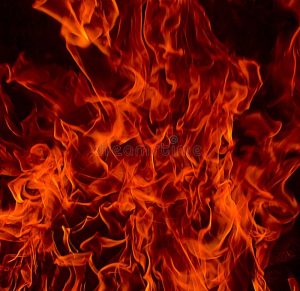HELL IN ISLAM: A REMINDER OF ACCOUNTABILITY AND DIVINE JUSTICE

In Islam, Hell—known as Jahannam—is a core concept symbolizing divine justice. It serves as a powerful reminder of the consequences of our choices in this life. On the Day of Judgment, it becomes the place of punishment for those who denied the truth, committed sins, and failed to repent. Vividly described in the Quran, Hell contains multiple levels of torment, each tailored to the severity of a person’s misdeeds.
This article addresses the question: “Is there a Hell in Islam?” It offers an in-depth exploration, detailing the purpose of Hell and its seven levels as mentioned in Islamic scripture.
WHAT IS HELL IN ISLAM?
Hell in Islam is a realm created by Allah as a means of punishing those who rejected His guidance. It is portrayed as a place of unimaginable suffering—both physical and spiritual. The Quran describes Hell as having gates, levels, and degrees of punishment, each corresponding to the sins of the individual.
But Hell is not solely a place of torment. It is a manifestation of Allah’s justice—where every deed is accounted for, and no transgression goes unnoticed.
THE PURPOSE OF HELL IN ISLAM
The concept of Hell in Islamic theology serves more than just to instill fear. It fulfills several essential roles:
-
Accountability: It emphasizes personal responsibility for every action, word, and intention.
-
Justice: It upholds divine justice, ensuring that those who commit grave wrongs face their due recompense.
-
Guidance: It serves as a moral compass, warning believers against sin and encouraging them toward righteousness and repentance.
THE SEVEN LEVELS OF HELL IN ISLAM (WITH QURANIC REFERENCES)
Islamic tradition describes seven distinct levels of Hell, each reserved for specific types of transgressors. Here’s an overview of each, along with relevant Quranic verses:
1. JAHANNAM
The most commonly mentioned term for Hell. Jahannam is a blazing fire prepared for disbelievers and evildoers.
“This is the Hell you were promised. Burn in it today for your disbelief.”
(Surah Ya Sin: 63–64)
2. LAZA
A fiercely blazing fire that strips away the skin. It is for those who turned away from Allah and denied His revelations.
“By no means! Verily, it will be the Fire of Laza. It will burn the skin of the head. It will call forth those who turned away and disbelieved.”
(Surah Al-Ma’arij: 15–17)
3. AL-HUTAMA
Known as The Crusher, this level is for those consumed by greed and arrogance. It crushes not just the body but the heart and soul.
“And what will make you know what the Crusher is? It is the fire of Allah, kindled, which rises over the hearts.”
(Surah Al-Humazah: 5–7)
4. SAQAR
A scorching flame for those who neglected prayer and refused to help the needy.
“What brought you to Saqar? They will say: We were not among those who prayed, nor did we feed the poor.”
(Quran 74: 42–44)
5. AL-JAHEEM
A blazing inferno for those who indulged in sinful pleasures and disobeyed Allah’s commands.
“And the companions of the left—what are the companions of the left? They will be surrounded by scorching fire and boiling water.”
(Surah Al-Waqi’ah: 41–42)
6. SA’IR
Meaning blazing flame, Sa’ir engulfs its inhabitants entirely. It is for those who defied Allah’s guidance and committed grave sins.
“Indeed, those who disbelieve in Our verses, We will drive them into a Fire. Every time their skins are roasted, We will replace them with new skins so they may taste the punishment.”
(Quran 4: 56)
7. AL-HAWIYAH
Known as The Abyss, this is the lowest and most severe level of Hell, reserved for hypocrites and the most egregious sinners.
“But as for the one whose scales are light, his refuge will be Hawiyah. And what can make you know what that is? A raging fire.”
(Surah Al-Qari’ah: 8–11)
HOPE AND REDEMPTION
Despite the terrifying imagery of Hell, Islam offers immense hope through repentance (Tawbah), sincere belief, and righteous action. Allah’s mercy surpasses His wrath, and the doors of forgiveness remain open until one’s final breath.
“Say, ‘O My servants who have transgressed against themselves [by sinning], do not despair of the mercy of Allah. Indeed, Allah forgives all sins.’”
(Quran 39:53)
CONCLUSION
Hell in Islam stands as a solemn reminder of divine justice and the gravity of our moral choices. It is not meant to plunge us into despair, but to awaken a sense of accountability and encourage spiritual reflection. By understanding the purpose and levels of Hell, we are better equipped to strive for righteousness and seek the eternal mercy of Allah.
Let the knowledge of Jahannam be a motivator—not out of fear alone, but out of a desire to live truthfully, justly, and in alignment with divine guidance. Make it a habit to engage with the Quran daily, allowing its teachings to illuminate your path and protect you from straying.

